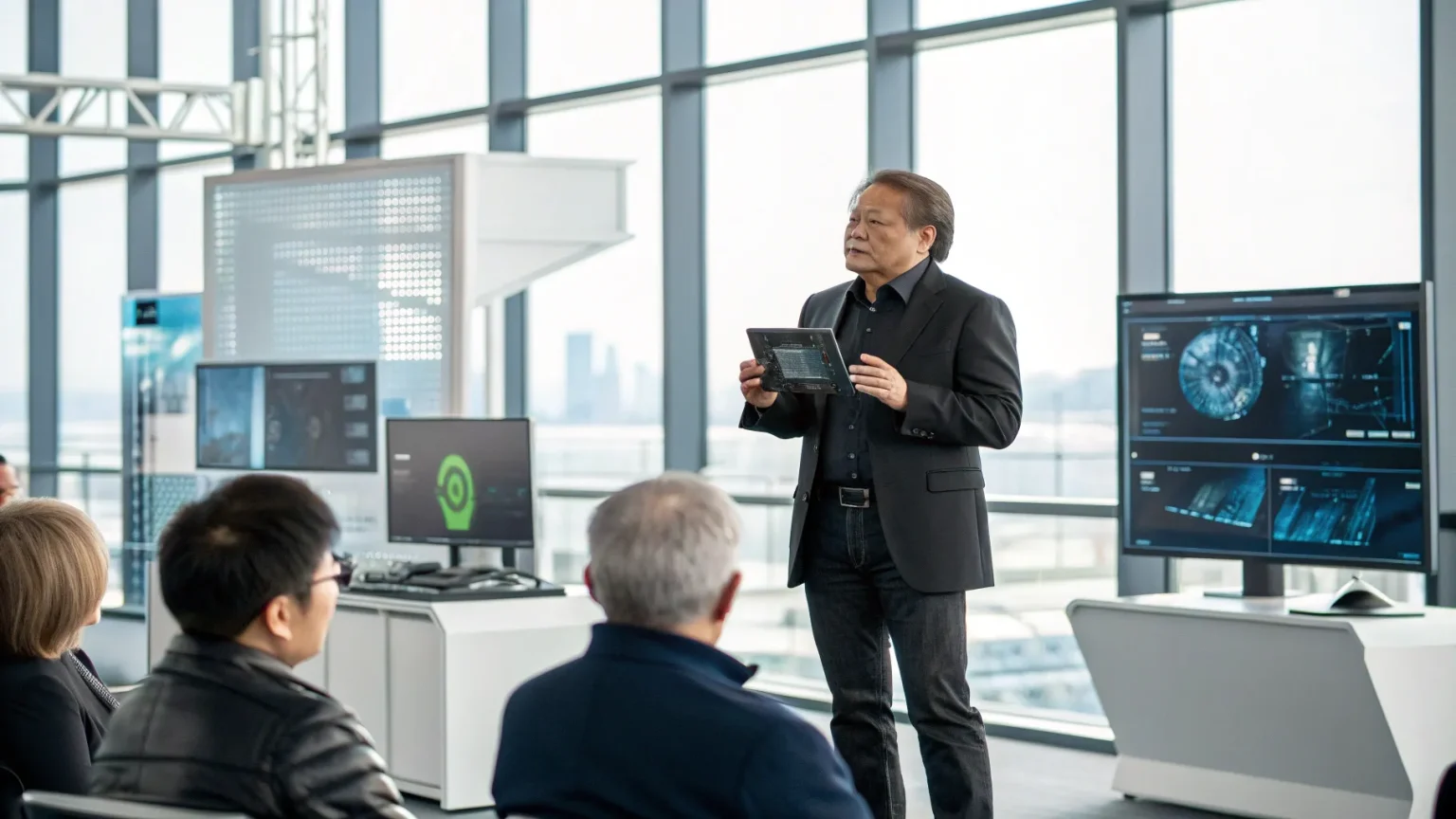Nvidia CEO Jensen Huang offered an optimistic view of artificial intelligence’s impact on society, suggesting that AI will ultimately enhance the quality of life even as it eliminates specific jobs. His comments came during a new interview released alongside the company’s latest earnings report this week.
The timing of Huang’s remarks coincides with Nvidia’s continued dominance in the AI chip market, as the company posted its financial results amid growing global interest in artificial intelligence technologies.
Balancing Progress and Disruption
Huang addressed one of the most pressing concerns about artificial intelligence head-on: its impact on employment. While acknowledging that AI will likely cause some jobs to “vanish,” the Nvidia chief executive maintained that broader improvements to living standards would offset these changes.
The CEO’s perspective adds to the ongoing debate about AI’s role in the workforce, with many experts divided on whether technological advancement will create more jobs than it eliminates. Huang appears to fall into the camp that views AI as a net positive for society, despite the disruption it may cause in specific sectors.
Nvidia’s Position in the AI Landscape
Huang’s comments gain particular weight given Nvidia’s central role in powering the current AI boom. The company’s graphics processing units (GPUs) have become the hardware backbone of many AI systems, from large language models to image generation tools.
The interview coincided with Nvidia’s earnings announcement, which investors and analysts closely watched for signals about the health of the AI market. The company has seen its stock value soar in recent years as demand for its AI-capable chips has grown exponentially.
Key factors driving Nvidia’s AI dominance include:
- Early investment in GPU technology suitable for AI workloads
- Development of specialized software frameworks for AI development
- Strategic partnerships with major tech companies and research institutions
The Broader AI Debate
Huang’s optimistic assessment comes amid increasing public discourse about AI’s societal impacts. While some industry leaders have called for caution and regulation, others have emphasized the technology’s potential benefits in healthcare, education, and other fields.
The Nvidia CEO’s comments suggest he believes the positive aspects of AI will outweigh the negatives. This perspective aligns with those who argue that technological progress has historically created new types of work even as it automated older jobs.
AI will cause quality of life to improve, even as some jobs vanish.
However, critics point out that the pace of AI advancement may be too rapid for workers and institutions to adapt, potentially leading to significant economic disruption before new opportunities emerge.
As AI continues to develop and integrate into various aspects of business and daily life, the debate over its ultimate impact on employment and society will likely intensify. Huang’s perspective, coming from the leader of a company at the forefront of this technological shift, adds a significant voice to this important conversation.
With Nvidia’s financial performance serving as one barometer of AI industry growth, many will be watching to see if the company’s success translates into the broader economic benefits that Huang envisions.







